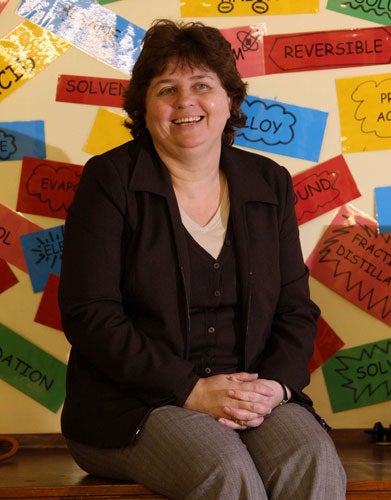Teachers take flight from state schools
Independent sector offers smaller classes and more professional freedom

Growing numbers of teachers are quitting state schools to work in the independent sector. About one in four (12,000) of the teachers in private schools has been "poached" from the state sector, shows research by the University of Kent.
In the past year alone, 1,500 teachers quit, the highest number for at least two decades, which compares with just 400 a year making a similar decision in the mid-1990s. The figures were released by Professor Francis Green at a conference to promote state and independent school partnerships in London yesterday.
They immediately prompted a warning from John Bangs, head of education at the National Union of Teachers, that the Government was "driving some of our most talented teachers into the independent sector". He added: "Very many teachers who go into the independent sector do so because they believe that the professional freedom and the smaller class sizes are something that they want to go to," he said. "They want to escape from the heavy-duty accountability they have to put up with in the state sector.
"There is massive food for thought for the Government here. It needs to ask itself whether or not it is driving some of our most talented teachers into the independent sector."
Dr Anthony Seldon, principal of Wellington College, an independent school in Berkshire, said the smaller class size in independent schools was also a major factor in parents choosing independent schools. The average class size in state secondary schools is 25.8 pupils. In independent schools it is 13.
"I'm fed up with studies that suggest it isn't a factor," he said. "I don't believe them if they say 'Oh, it doesn't matter, the pupil/teacher ratio'. If you have fewer people in your class, it is surely better for contact and for marking homework." Professor Green told the conference he believed independent schools that attracted experienced teachers from a maintained school had to "think about doing a substantial amount in terms of showing public benefit" to justify their charitable status.
Independent schools are worried that they may lose their charitable status if they fail to meet tough new guidelines being prepared by the Charity Commission to show they are meeting their obligations to benefit all sectors of society. The new guidelines will be published before Christmas, with the first schools knowing their fate by Easter.
Mr Bangs said he did not believe it should be enough just to show they were offering bursaries or scholarships to some of the brightest children in the state sector. "That's not good enough," he added. "They should offer a range of bursaries for children of all abilities – that's the only way they can meet the requirements of showing public benefit."
Rosie Chapman, executive director of the Charity Commission, said there would be "no formulaic approach" to determining whether a school was meeting its obligations. "We will not make a blanket diktat that a certain percentage has to be offered in bursaries," she added. "Each school will be assessed on a case by case basis."
'I certainly don't have any regrets'
For Patricia Heather, it was the chance to teach somewhere with "high expectations of good results" that prompted her to move from a state school to a private one. She is now head of science at Halliford boys' school in Shepperton, west London, after four years in state schools. "One of the reasons for the change was that it gave me the chance to do A-level work," she said. "Most local schools are only for 11- to 16-year-olds." Now she takes pupils for one-to-one teaching sessions and has a sixth-form class of just six pupils. There were 30 teenagers in the top set of her state school. In the younger years at Halliford, a 400-pupil boys-only school, she has 22 pupils.
"I certainly don't have any regrets," she said. "The high expectations here are threefold: the school has high expectations, all the teaching staff do, and parents do because they have paid for their children's education. The boys also have a high expectation they're going to succeed. Also, every teacher knows every single boy here. You can concentrate on teaching rather than class management."
Join our commenting forum
Join thought-provoking conversations, follow other Independent readers and see their replies
Comments
Bookmark popover
Removed from bookmarks